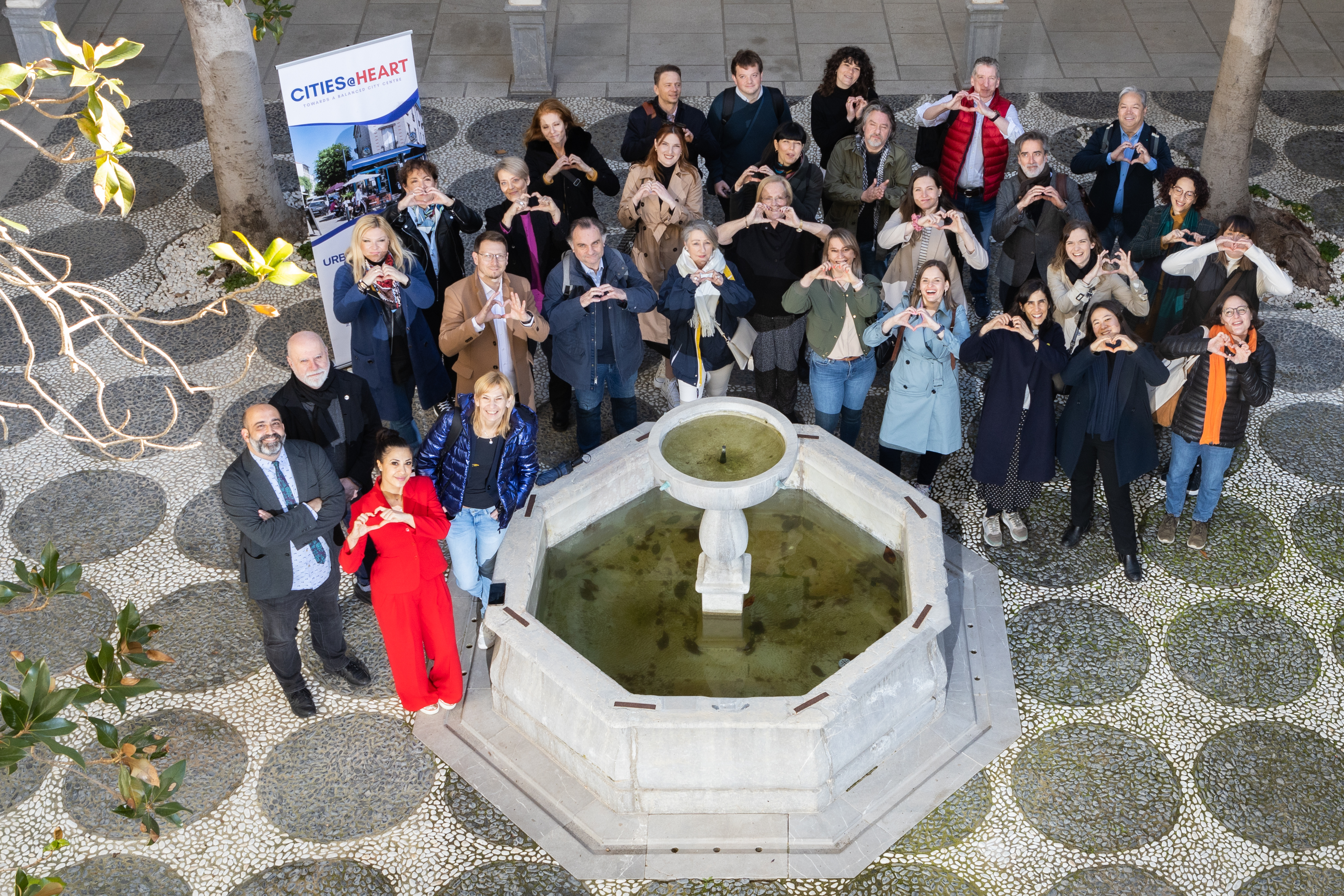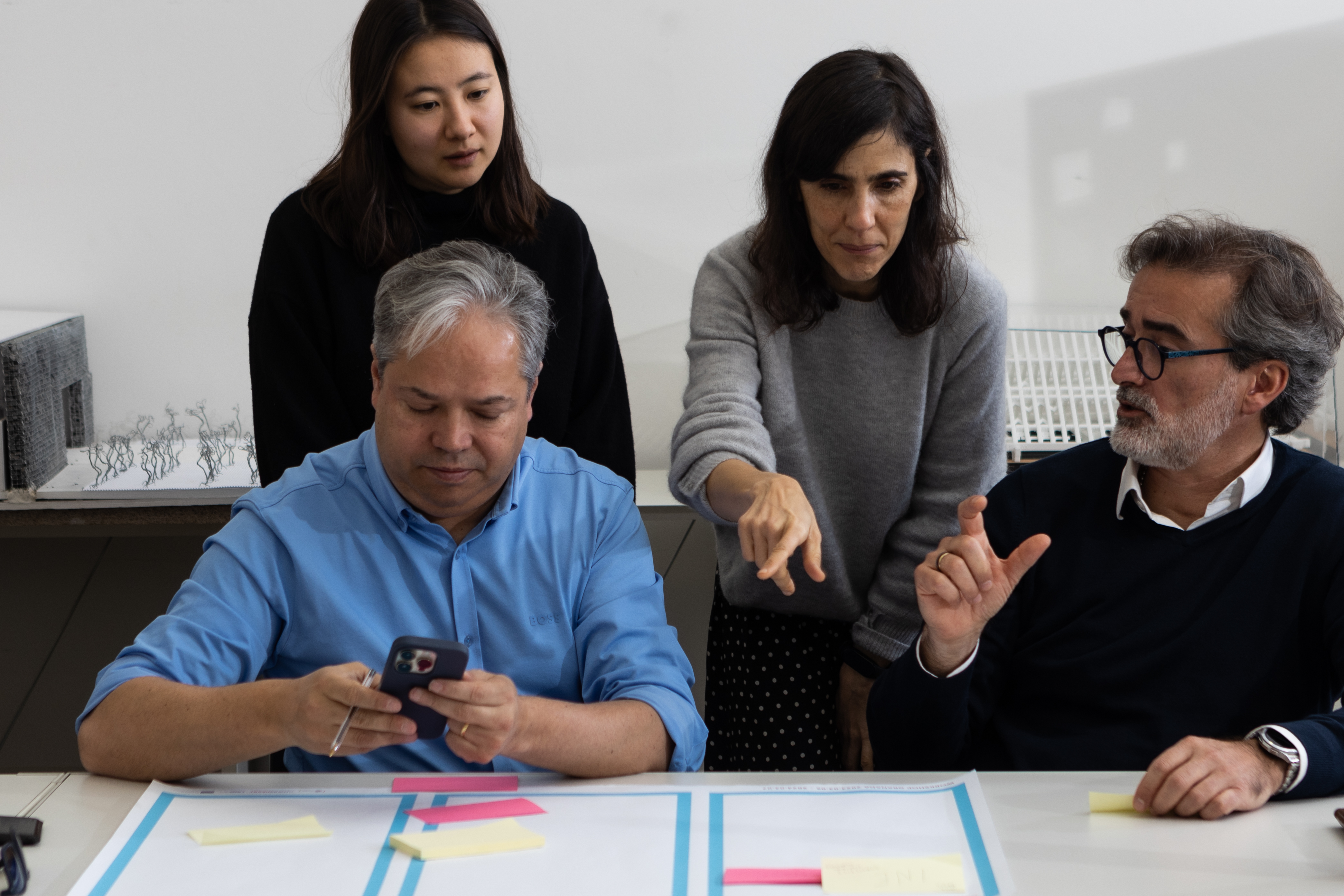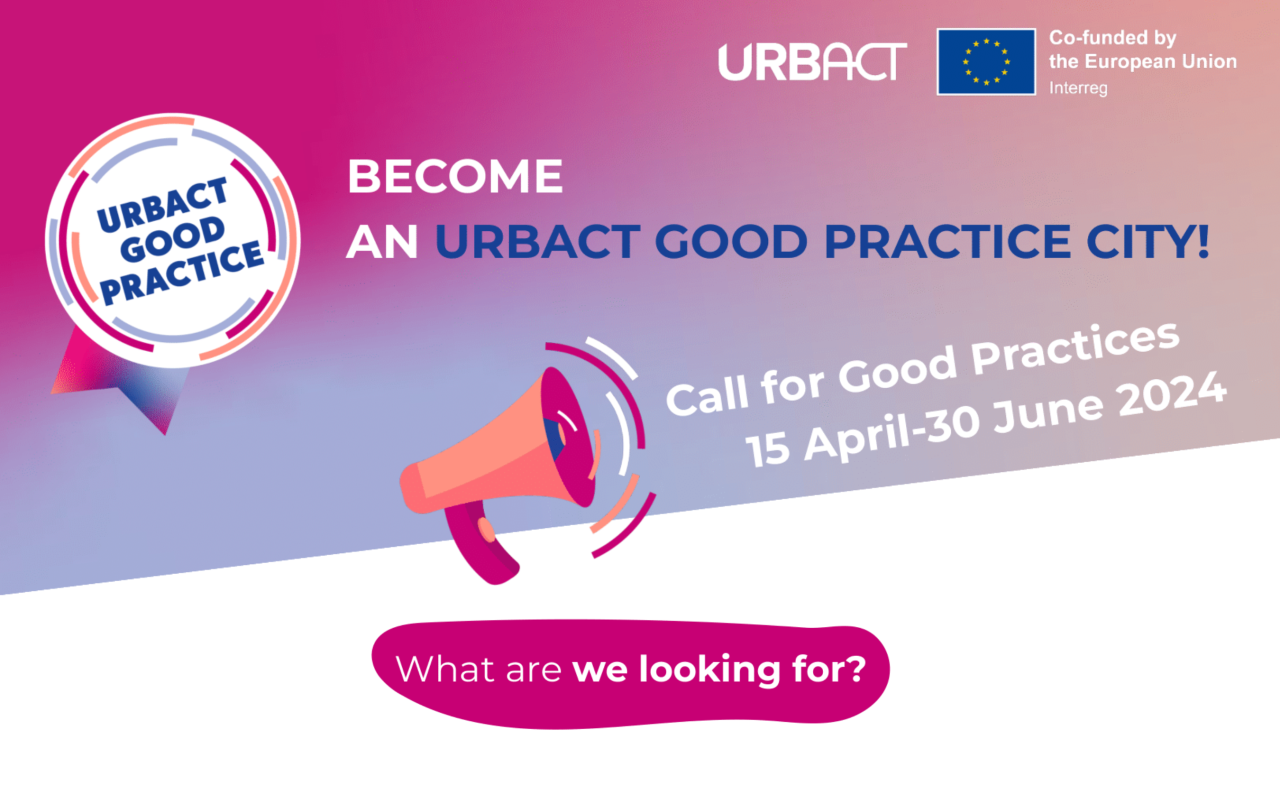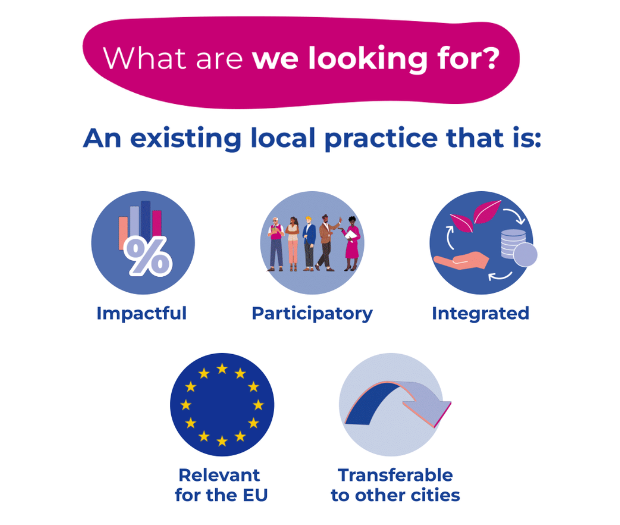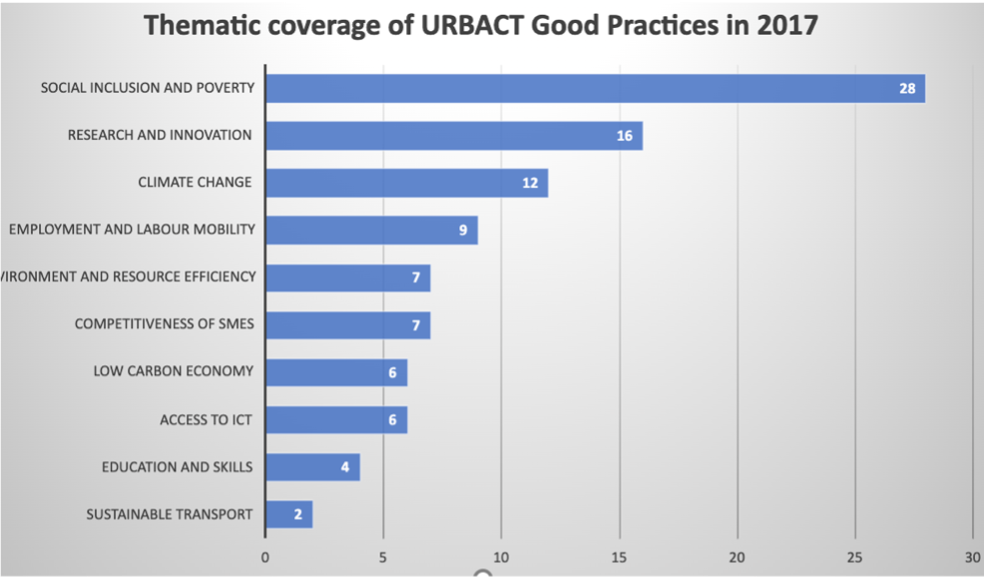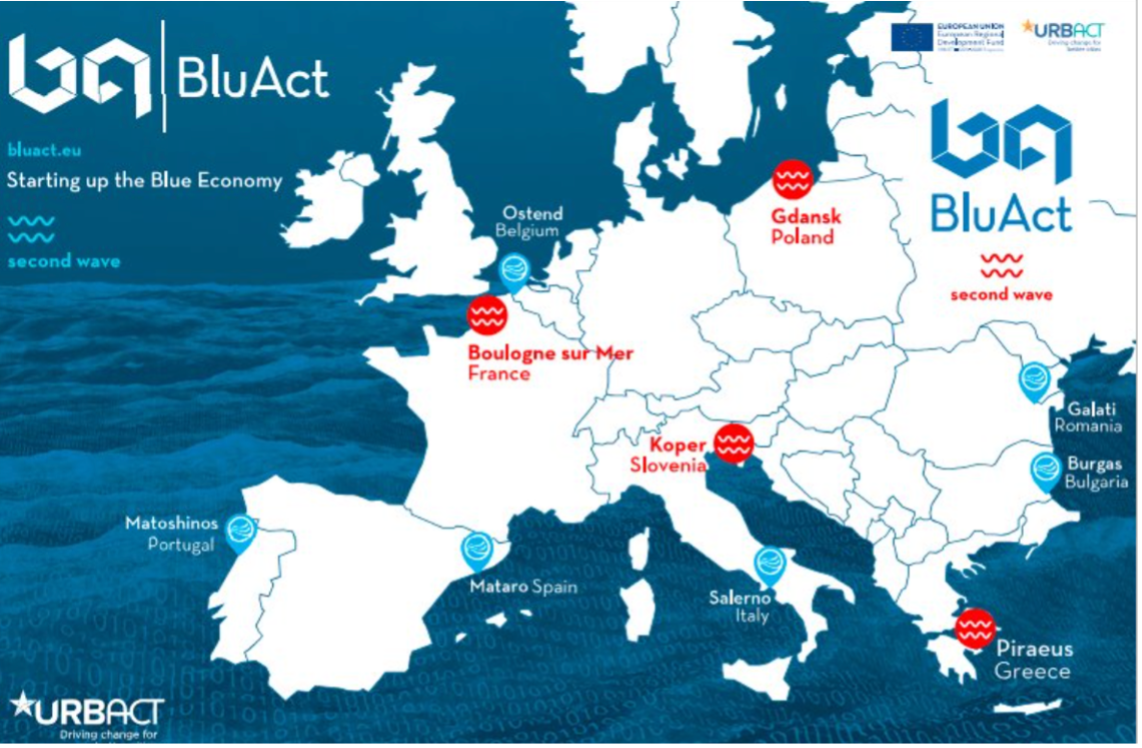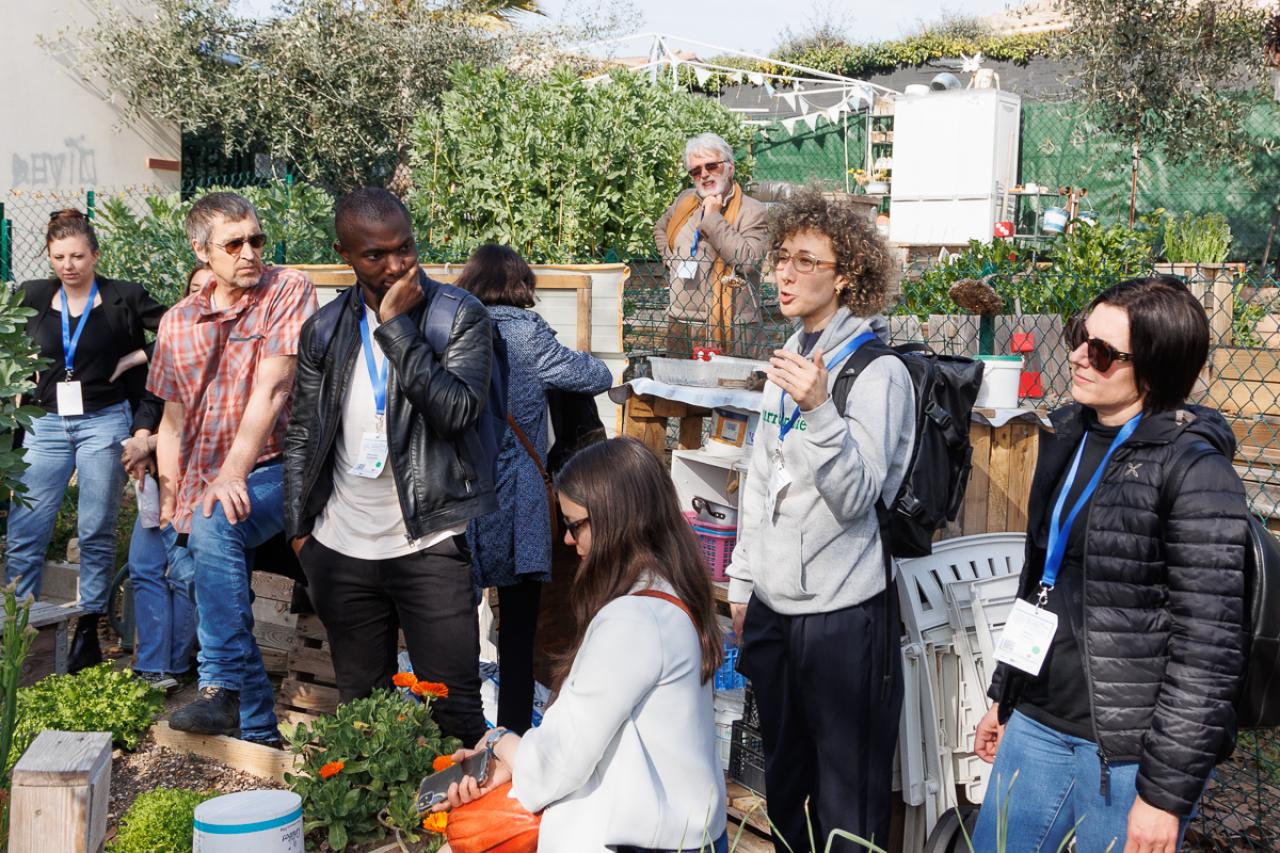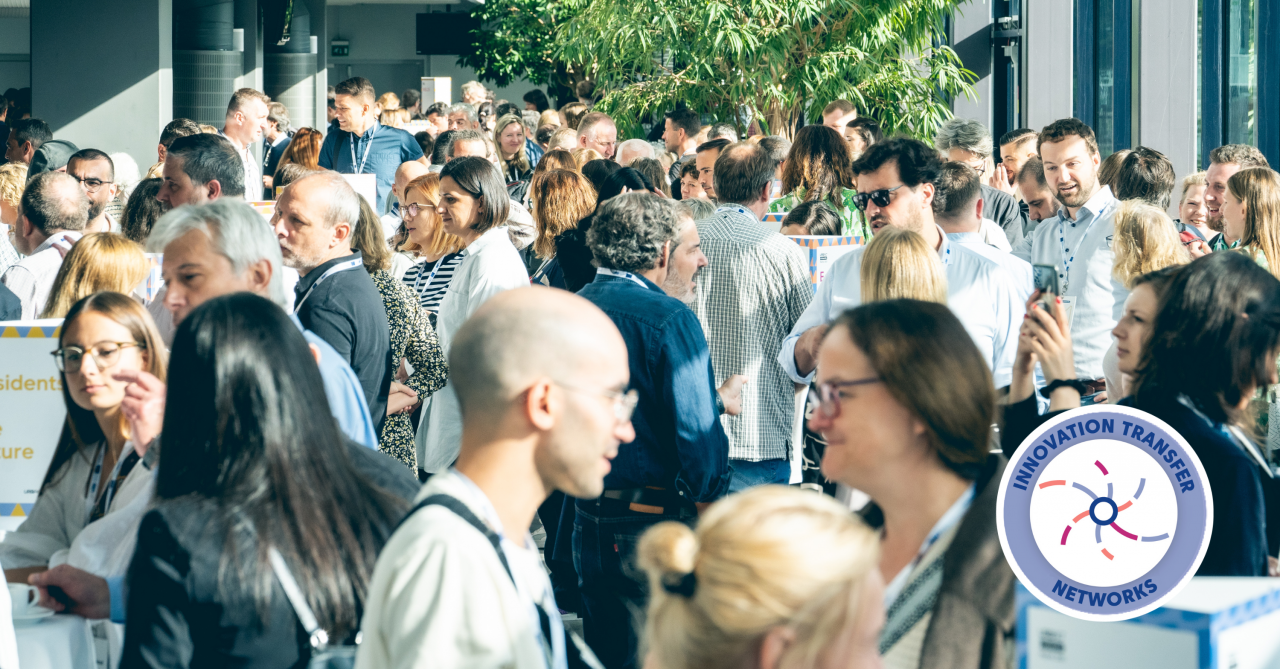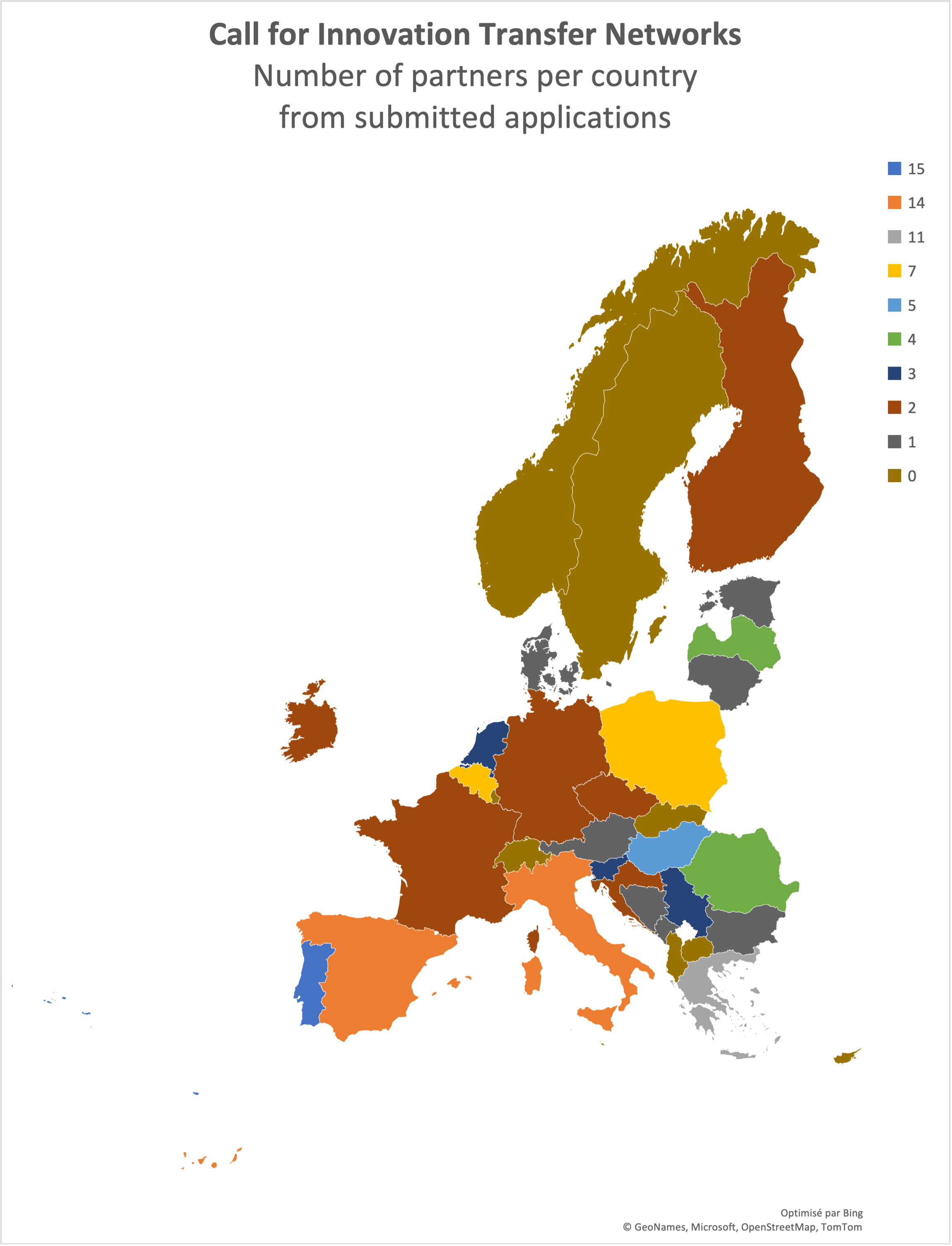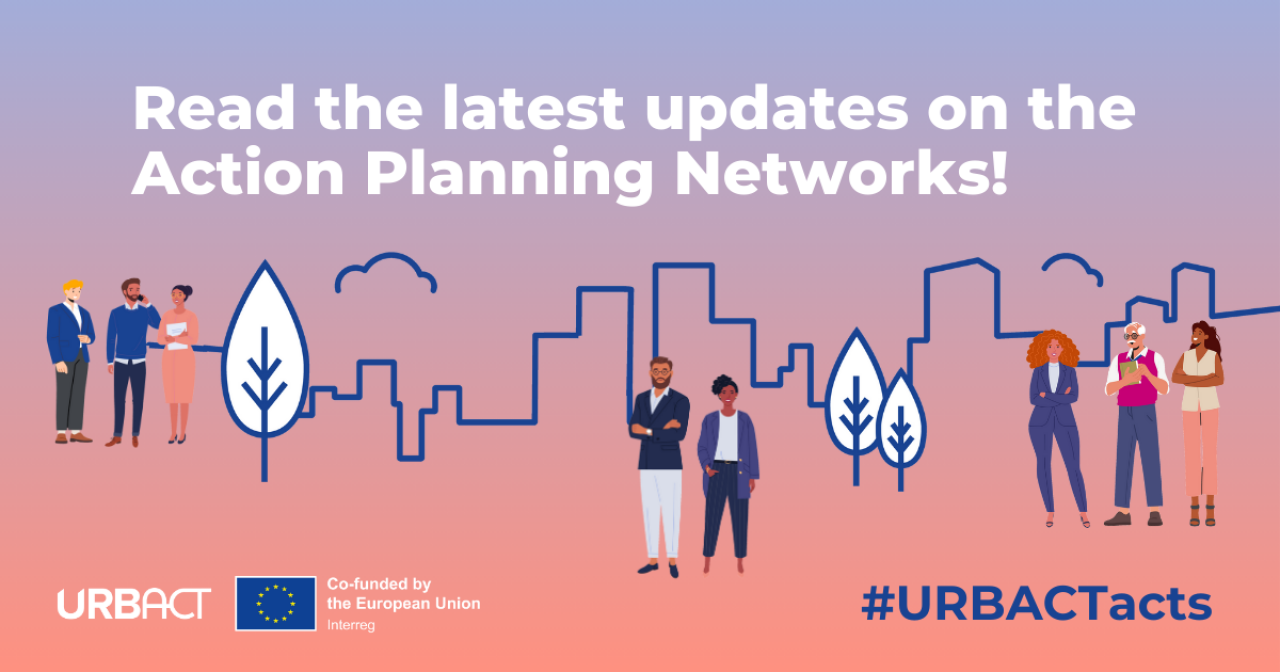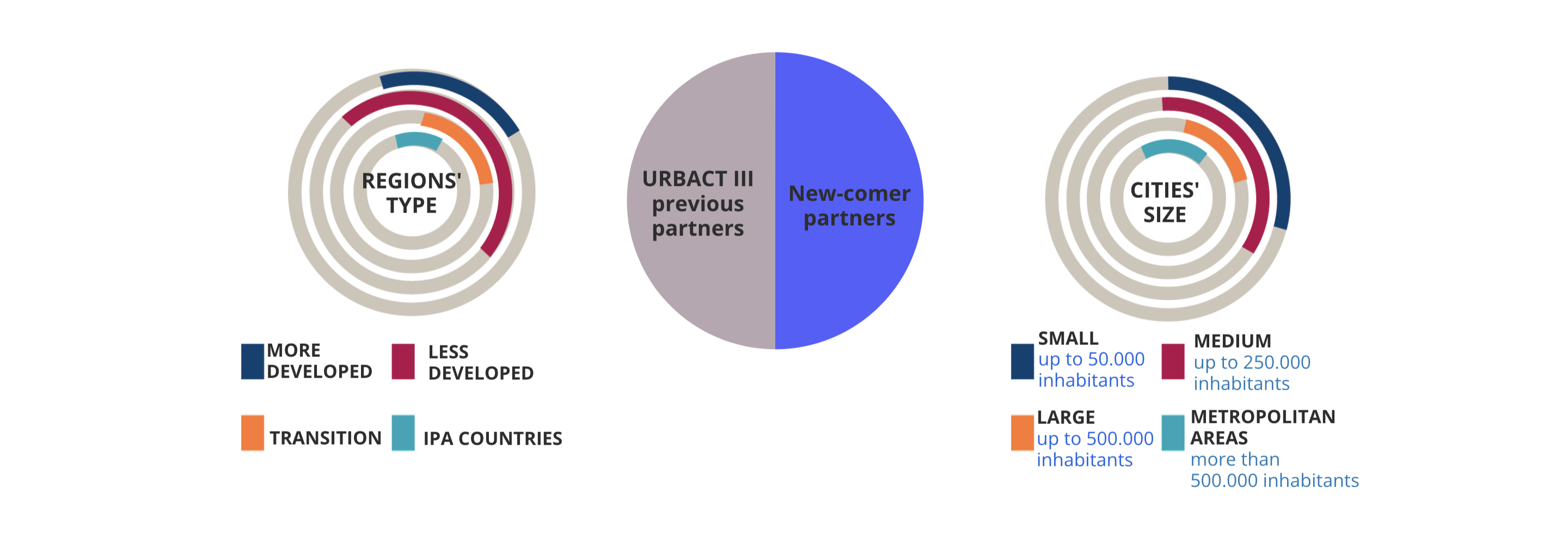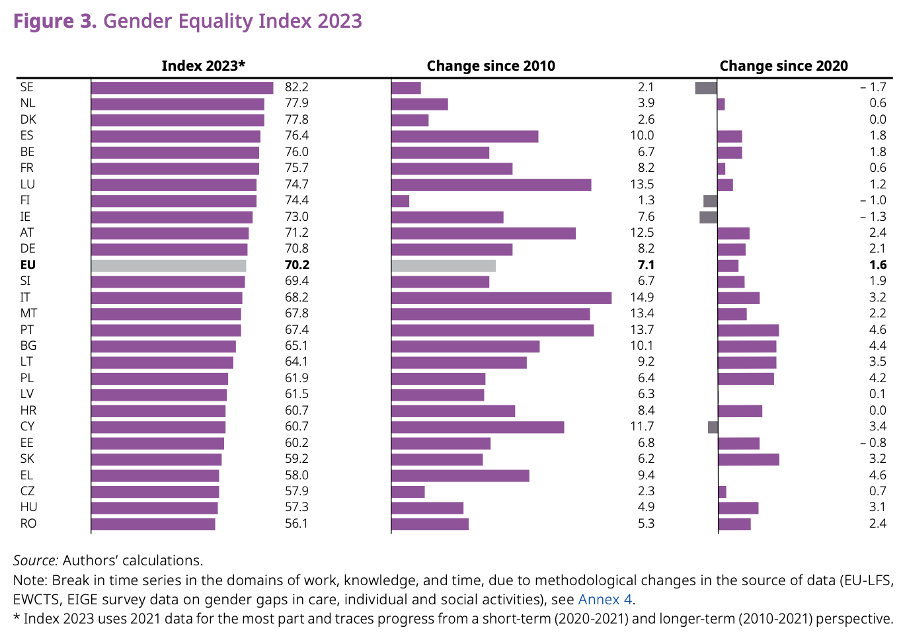Group of EU City Lab participants visiting a collective urban garden in Mouans-Sartoux (FR).
Food systems are a primary cause of environmental degradation and contribute to climate change, health inequalities and waste. With half the global population living in urban areas, cities are tuning in to the role they play in building more sustainable food systems and helping their residents eat a healthier diet.
On 21 and 22 March 2024, around 50 city practitioners from 9 European countries gathered in Mouans-Sartoux (France) for the EU City Lab on Changing Food Habits for a Healthy and Sustainable Food System.
This article condenses the rich exchanges that took place there into 5 ways cities can get onto – or further explore – the food transformation path.
If you like what you read here, have a look at the EU City Lab #2 programme on using public procurement for more local, seasonal and sustainable food on 29-30 May in Liège (BE).
1. Take a Food Systems Approach
Roxana Maria Triboi, lead author of the ex-ante assessment of the “Food” thematic area under the Urban Agenda of the EU (UAEU), emphasised citizens’ “disassociation with food production”, i.e. a general lack of awareness of food production processes and their social, economic and environmental impacts. For instance, many ignore that food production is responsible for around 26% of global greenhouse gas (GHG) emissions. By taking a more proactive approach to food consumption, citizens can work towards reintegrating food as a focus of political engagement and help build more sustainable local food systems.
On their end, policymakers need to stop looking at food policies in a silo, and instead start associating them with broader economic and social goals, such as re-dynamising the local territory or building food security through shorter and fairer supply chains. Thanks to their flexibility, smaller cities are especially relevant to develop synergies and integrated approaches.
The ex-ante assessment of the Urban Agenda’s “Food” thematic area conducted in 2023 embraced this holistic perspective, building on a conceptual framework developed by IPES-Food. The same conceptual framework also inspires the approach of the three EU City Labs on Local Food Systems.
2. Navigate the EU landscape on food
In recent years, EU food policies also witnessed a progressive shift towards a more systemic and sustainability-oriented approach. The 2020 Farm to Fork Strategy, for instance, attempted to introduce an holistic perspective to the food production chain, from the producers to the consumers (and beyond, in the context of a circular economy) and to put sustainability at the core of food systems transformation.
Yet, there is still a long way to go to transform these ambitious goals into reality, as many critical voices are being raised. “Europe is witnessing a growing push to shift the perspective “from fork to farm”: that is, emphasizing the political legitimacy of the citizens-consumers to decide what they wish to eat” recalled Gilles Perole, Deputy-Mayor of Mouans-Sartoux. As EU legislators work to fill the gap, cities keep playing a key role as drivers of change.
Initiatives such as the UAEU Partnership on Food, launched in January 2024, put cities at the heart of local food policy transformation. As explained by Elisa Porreca, Food Policy Officer of the City of Milan and coordinator of the partnership, it gathers 21 stakeholders from all sectors of the urban food chain, to build both a shared vision and the necessary tools for its sustainable implementation. For the coming years, the goal is to improve the funding, regulation and knowledge in relation to local food systems.
3. Get inspired by cities across Europe…
Organic food in school canteens in Mouans-Sartoux
Over the years, the city of Mouans-Sartoux has turned into a key source of inspiration for urban food policy practitioners across Europe. Why?
Because of its three primary school canteens serving 100% organic food since 2012 – all cooked on-site by the canteens’ chefs, with 85% of self-produced vegetables all-year round and diversification of proteins through 50% of vegetarian meals for all. 1,100 meals are served every day by the school canteens to 97% of the total number of pupils in Mouans-Sartoux. The local supply of vegetables is ensured by the municipal farm – a 6-hectare plot pre-empted by the municipality in 2010, with a yield of 25 tons per year. Three full-time farmers work there as civil servants – a first in France.
Mouans-Sartoux’s practice and know-how has been customised and transferred to 9 European cities through two URBACT Transfer Networks called Biocanteens and Biocanteens#2 from 2018 to 2022. Many other French cities have followed Mouans-Sartoux’s example.
A key strength of the city’s practice is the progressive buildup on projects, leading to a systemic approach. EU City Lab’s participants got to discover the different building blocks of this approach through city visits and dedicated discussion sessions.
“The Municipality played a key role in initiating this policy, yet it has focused since the beginning on fostering citizens’ implication,” recalled Gilles Perole, Deputy-Mayor of Mouans-Sartoux. Since 2016, the MEAD (Centre for Sustainable Food Alimentation) supports this ambition through training and education initiatives. Most recently, the city’s participatory efforts led to ‘The Citizen Feeds the City’ initiative, which saw the creation of seven community gardens – initiated by citizens and managed in autonomy by a group of them.
To tackle the inclusiveness challenge, since 2011 low-income or unemployed citizens may benefit for a few months access to a social grocery store, where they can get healthy and sustainable food at a very low cost. A step further? Scaling up to more categories of citizens who don’t have the chance to properly consider the food they consume. As explained by Caroline Monjardet, Project Manager at MEAD, the city currently works with local companies and restaurants to propose healthier and locally-sourced meals to their employees or customers.
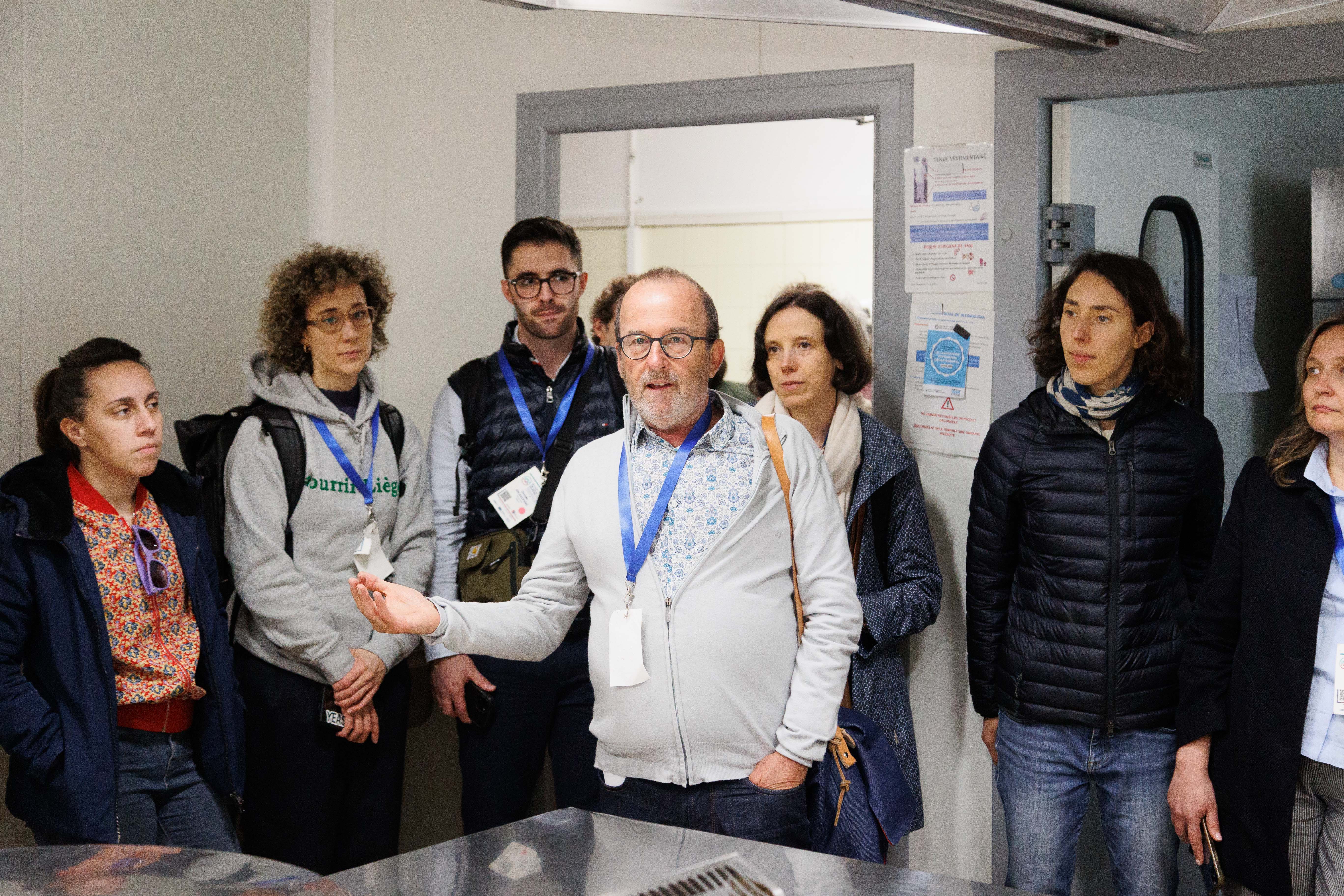
Group visit to one of the 100% organic school canteens in Mouans-Sartoux (FR) -- with Gilles Perole, Deputy-Mayor of the city.
Food Study with Irish Traveller women in Cork, Ireland
Around 2015, a network of traveller women approached Denise Cahill, Healthy Cities Co-ordinator in Cork, concerned about the rate of obesity in their community. Rather than spreading once more food recommendations, as they had multiple times without success, they built together the framework for a food study exploring the social determinants of traveller’s women health. Driven by their experiences, especially facing structural racism and hostility, this research was built with and owned by those traveller women. “Nothing about us without us” is the new motto in Cork..
“Cork is now trying to become a trauma-informed city.” As Denise explained, this study did not have such an impact on the obesity rate, but that was never the main goal. Going beyond the scope of food, the study became an advocacy tool for social services to understand the struggles and trauma that vulnerable communities battle with, and ultimately build more positive exchanges with them.
“The thinkers and the doers must find a common space.” Denise explained how creating this dialogue is a motor for the city’s action, to give room for everyone’s voices, from the farmers to the elected representatives, including the planners, and the grassroot movements.
UIA TAST’in FIVES in Lille, France
Perrine Dubois, project manager at the City of Lille, shared a story of transformation. A former industrial city throughout the 19th and 20th centuries, Lille witnessed in 2001 the closure of one of its last industrial factories, “Five Cail” (straddling the neighbouring commune of Hellemmes). What to do with this 15hectare brownfield site located in the heart of the Lille metropolis? In the context of a broader project to turn this zone into an eco-district, the city applied in 2016 to an Urban Innovative Action (UIA) call for the financing of Tast'in Fives, a space dedicated to sustainable food.
At the heart of the brownfield, a central food hall of over 2,000m2 was therefore renovated to host an innovative combination of activities: a “community kitchen”, a professional kitchen hosting an incubator, an urban farm, and a food court. The first three structures opened in 2021, while the food court, delayed by the Covid-19 pandemic, opened in March 2024.
The project – today called “Chaud Bouillon!” – involved many actors, including residents, neighbourhood associations, universities and private companies. Although its main focus is on strengthening social linkages, attention is also paid to food sustainability aspects – i.e. encouraging shifts towards more sustainable food habits. For example, the incubator’s projects must adhere to sustainability criteria, like the recovery of unsold goods from supermarkets.
School canteens solutions in Milan
In Milan, the municipal food provider Milano Ristorazione supplies about 80 000 meals per day, mainly served at schools. Milano Ristorazione is one of the main public stakeholders in the implementation of the Milan’s Food Policy and is a place to experiment with good practices, including menu changes and other enabling measures.
“The city started monitoring the impact of school catering services more closely in 2015 and has since then managed to reduce greenhouse gas emissions by 42%, mainly by cutting down on red meat and serving more fruits and vegetables” explained Chiara Mandelli, from the Food Policy Area of the Municipality of Milan. The city also achieved significant waste reduction through several measures, from shifting the times when fruits are served at schools, to offering “doggy bags” for children’s leftovers. To challenge the taste of children – often used to processed food and lower vegetable consumption – an educational campaign was launched, featuring booklets and games.
As Chiara also explained, Milan recently participated in the European Food Trails project to renovate school canteens; and in the EU project “School Food for Change” to create educational programmes for children on local food heritage. Finally, a recent partnership with the University of Pavia seeks to bridge the scientific assessment gap and learn how to best use existing data to inform future policy choices.
The Circular Food Hub in Roeselare
The Circular Food Hub in Roeselare (Belgium) extends beyond just providing affordable food. It includes a social grocery store; an eco-café serving low-price meals made with local products; a shared kitchen for workshops on cooking cheap, healthy and sustainable meals; and other amenities.
Designed as a space for inclusion and for strengthening social linkages among different groups, the place opened in 2020. It quickly succeeded in attracting a variety of users – from the beneficiaries of the social grocery store to participants in food workshops and other training initiatives.
The Circular Hub is in a former post office owned by the city. “The building features large meeting spaces available to residents and the city administration for future projects, including around food” explained Bo Vanbesien, expert in subsidies and external relations from the City of Roeselare.
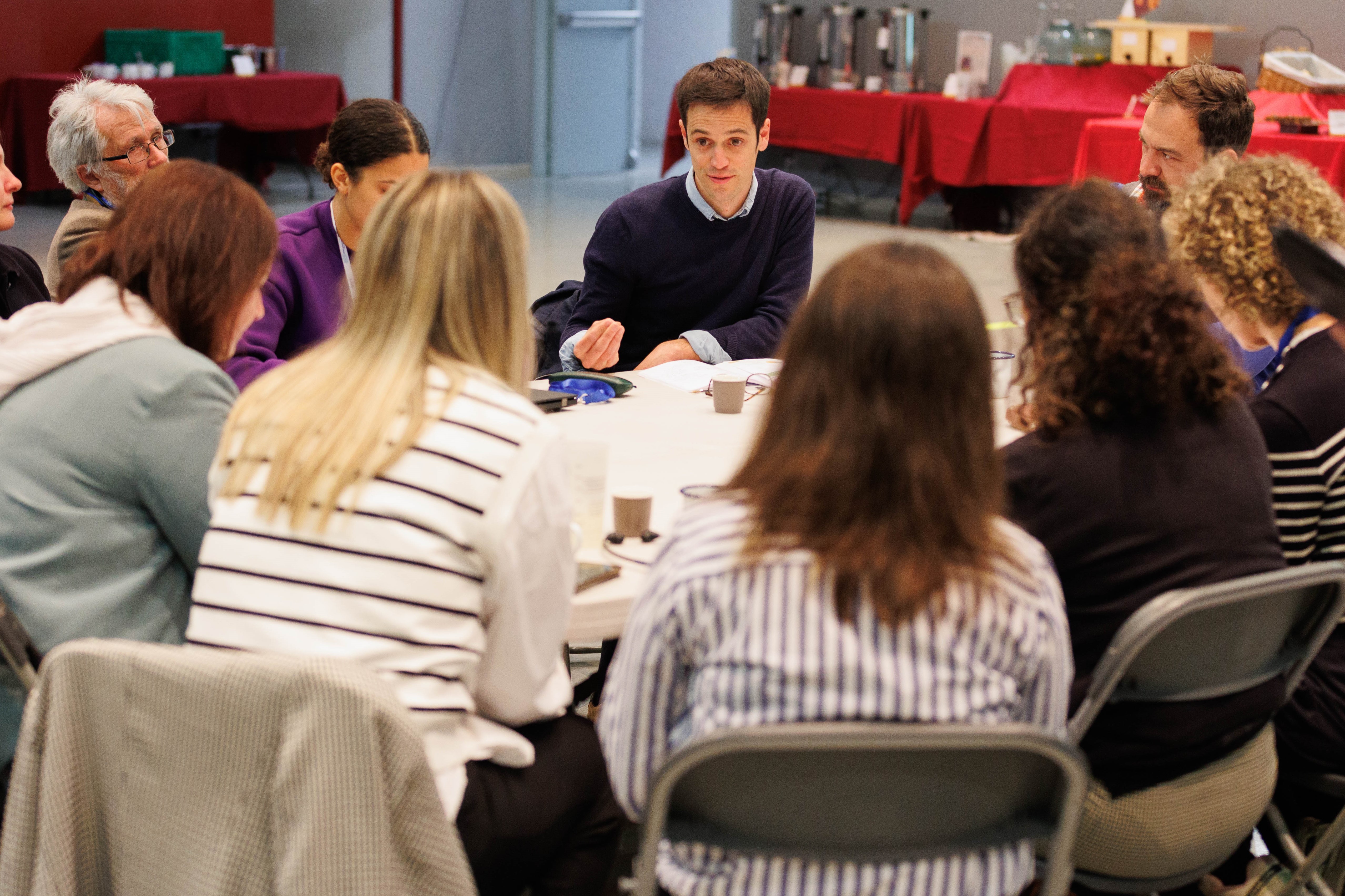
Sharing cities' experiences in Mouans-Sartoux (FR).
4. Show the impact of your actions
For Thibaud Lalanne, MEAD Coordinator, impact assessment forms the foundation of the practice of sharing that Mouans-Sartoux has championed. Evaluation is important in two regards: first for internal legitimacy, as public spending is involved; then to advocate and spread good practices to other cities.
In 2022-23, Mouans-Sartoux’s good practice underwent three assessment exercises: first, the 2022 survey conducted by the Municipal Observatory of School Canteens, focusing on changes in families’ food habits; second, a comprehensive study (in French) based on the a specially-developed evaluation framework for sustainable food projects (Syalinnov method), touching upon a variety of dimensions; and third, a study on environmental impacts conducted by PhD researchers from Nice University. Thanks to these efforts, Mouans-Sartoux is able to quantify the impact of its food policies: a 92% reduction of its carbon footprint according to the Nice study.
What is main challenge when it comes to evaluation? “The lack of resources” says Thibaud. “There is a contradiction between the necessity of evaluating the policies and the reality of carrying out the surveys.” Evaluation exercises take time, involve many people, and cities can lack the technical competences. To cope with these challenges, “get support to conduct assessments, narrow down the scope of research, and allow yourselves some flexibility, as there is no ‘one size fits all’”.
5. Check out the next URBACT / EUI networking & funding opportunities
As Gilles Perole recalled: “the transformation that took place in Mouans-Sartoux can happen in other European cities, whatever their size.” The experience of the URBACT network Biocanteens #2 clearly demonstrated this, by enabling the transfer of Mouans-Sartoux’s good practice to cities like Liège, Wroclaw and more. Cities that vary in size and features of course, but with some key characteristics in common that made the transformation possible: awareness about the stakes related to local food systems; political ambition to change things; and willingness to promote healthier food to the citizens.
- Download the presentation made at EU City Lab on Local Food Systems #1
- Interested in learning more on the sustainability transition of local food systems? Join us in Liège on 29-30 May 2024 for the next EU City Lab on Public Procurement for More Local, Seasonal and Sustainable food. Register now!
- Does your city administration have a good practice on this or other topics? Then tell us about it from 15 April to 30 June 2024, during the URBACT Call for Good Practices which seeks good practices that bring positive local impact, that are participatory, integrated and transferable to other cities. More information about this Call will be available on urbact.eu/get-involved
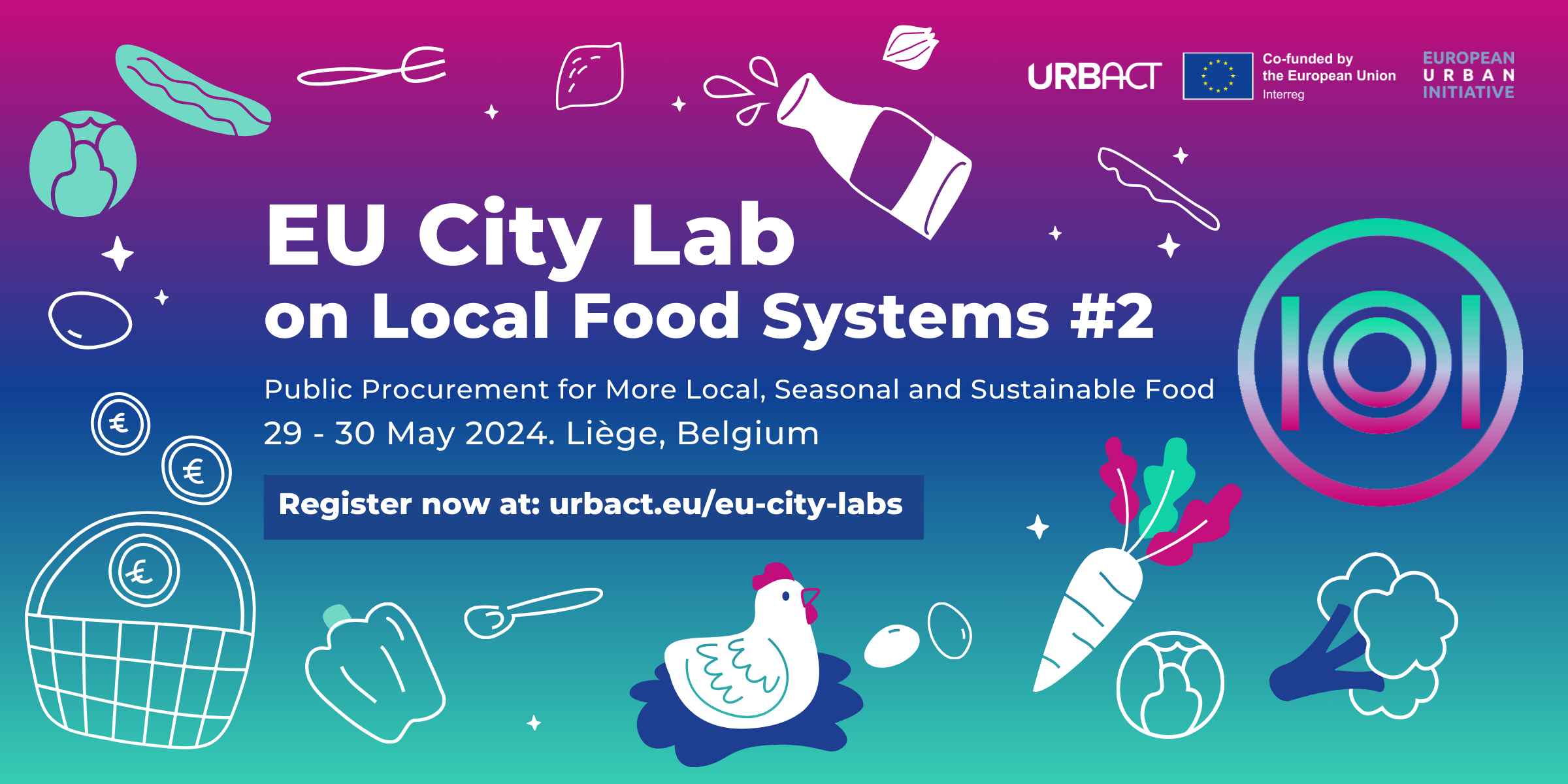
Additional resources:
- Portico knowledge resources
- Lab speakers/cities or any other urban pratictioner with an interest on food in cities can be contacted via the Portico community
This article was authored by:
Chiara Petroli, Events Officer at URBACT.
Eva Timsit, Ben Eibl and Nicola Candoni, Students at Science Po Paris.
